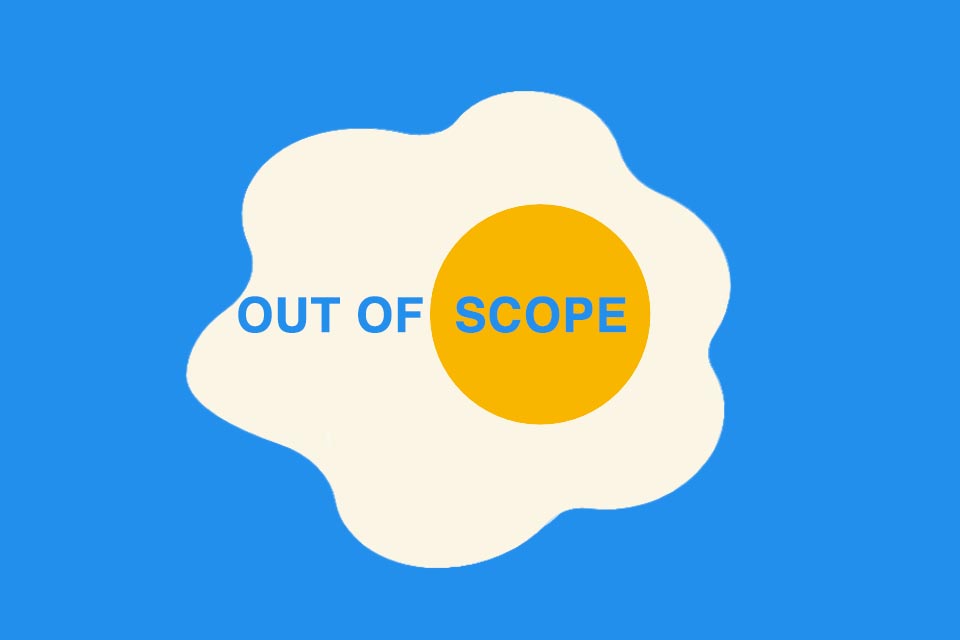What is Uncertainty?
Table of Contents: Unexpected and unforeseeable events – Definition – Attitudes – Acting and deciding – Questions – Notes
Smartpedia: Uncertainty is the sum of all unforeseeable events. Unforeseeable events are those that are not anticipated despite professional planning.
The difference between unexpected or unforeseeable events
You travel by car from A to B and have a flat tire on the way. Although the puncture happens unexpectedly, you are prepared for it: you have a spare tyre on board. You will quickly have changed the tyres and the journey to B can continue.
You travel by car from C to D. On the way you suddenly have two defective tyres. At the same time a part of your car roof comes loose and flies in a high arc into the ditch next to the road. You were not prepared for this event. Even with the best planning there would have been no way to prepare for this event, because it was unforeseeable. You cannot continue your journey immediately.
Uncertainty definition
Uncertainty is the sum of all unforeseeable events. Unforeseeable events are those that are not anticipated despite professional planning. This distinguishes them from unexpected events, which can also occur if not sufficiently planned or prepared. In projects and during the development of products they occur, for example, in the form of
- new customer requirements,
- changed product specifications,
- changes in the planning process,
- delays in development,
- quality deficiencies in the supplier network,
- delivery failures,
- personnel changes or
- changed legal conditions.
Of course, the list is not complete.
What are the attitudes towards the concept of uncertainty?
When dealing with uncertainty, two fundamentally different attitudes come together:
- One is the opinion that uncertainty is an integral, determining phenomenon of our lives and therefore cannot be controlled.
- Others consider uncertainty to be a phenomenon that can be reduced – even eliminated – by an increase in knowledge; this creates the impression of (potential) controllability.
Ultimately, it does not play a decisive role for a fruitful handling of uncertainty, which attitude one feels more in line with, because even the apparent controllability through knowledge is a vision that lies far in the future.
Acting and deciding in uncertainty
In order to be or remain capable of making decisions and acting in uncertainty, a sense of security is needed. This perceived security can be created by applying a wide variety of approaches to uncertainty that model structural aspects of uncertainty or lead to a fruitful handling of uncertainty through awareness of one’s own competencies. The necessary competencies can be learned and trained in advance of unforeseeable events. The available offer from science and practice is far-reaching, an overview is given by a study of GPM.¹
A helpful description for acting and deciding in uncertainty comes from Prof. Fritz Böhle, a social scientist from Munich. According to this, subjective action – colloquially one could also speak of intuition here – is the appropriate form for acting in uncertainty. Subjectifying action requires objective action, e.g. in the form of planning.
| Objectifying action | Subjectifying action | |
| Approach | According to plan, guided by planning; separation of planning and execution | Experimental, dialogical-explorative and -iterative |
| Thinking | Formalisable, categorical (technical) knowledge; logical-formal, analytical thinking | Associative, perceptually guided, pictorial, behavioural and experiential, comprehensible |
| Perception | Precise, objective registration | Complex sensory perception, sensory experience and feelings |
| Relationship | Distant, objective, affective-neutral | Personal, proximity, unity (empathy) |
Prof. Boehle has also researched the fact that action and decision making are intertwined in uncertainty, in contrast to certain situations in which planning is first performed, then decisions are made and then action is taken.
Questions in the wake of uncertainty
There are a number of questions in the context of uncertainty. You can find answers to some of the questions in our blog:
Planning subject to reservation: Uncertainty is a feature in projects and technology is a major contributor to uncertainty. How can organisations nevertheless plan sensibly?
How can I avoid uncertainty? Many people associate uncertainty with a loss of control, which they want to avoid. This is understandable, but not goal-oriented. What is the alternative?
Leadership in uncertain times: How does leadership work in a global crisis? How does security emerge in times of uncertainty and what are the do’s and don’ts of leadership?
PMO and Uncertainty: At first glance, project management offices (PMOs) and uncertainty contradict each other. How could the interaction of both issues work?
The Principle of Effectuation: How do successful entrepreneurs deal with uncertainty? How can you operate successfully on the market in the long term? The answer is: Effectuation.
Is the world getting more complex? It feels like complexity is increasing in many areas. What impact does this have when making decisions, planning projects and using models?
VUKA, so what?! We live in a volatile, uncertain, complex and ambiguous world. What does VUKA mean for companies and how can the challenges of the VUKA world be mastered?
What we can learn from Starship Enterprise: The TV series Starship Enterprise presents knowledge from uncertainty research that is still little used even today. What can we learn from it?
Surely you can think of more questions. Feel free to contact us and we will try to answer your questions or publish corresponding articles.
Impulse to discuss
Uncertainty and insecurity are not synonymous.
Notes:
Uncertainty tends to be viewed in deficit in our culture. Uncertainty “disrupts” our good plans. Acting and deciding in uncertainty is often retrospectively classified as “right” or “wrong” instead of constructively testing new ideas for solutions. This deficient approach is due to our rational culture and the increasing mechanisation since the beginning of the industrial revolution. It is increasingly questioned by science, especially by findings from social scientists and neuroscientists. At the same time, the perspective on uncertainty is gradually changing in economic practice in such a way that uncertainty is perceived as an opportunity with economic potential.
[1] Here you can find a German study of GPM on the topic of uncertainty.
If you like the article or would like to discuss it, please feel free to share it in your network. And if you have any comments, please do not hesitate to send us a message.
Here you will find additional information from our Smartpedia section:



